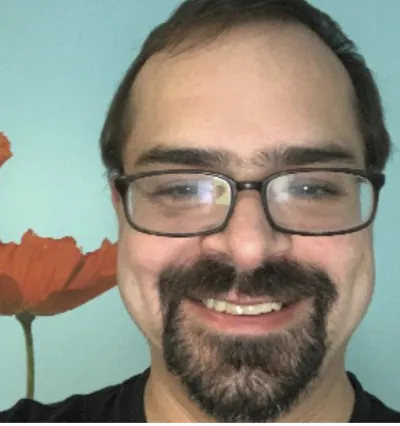
Frank Tuthill
Contact
Bio
I was born in New Haven, Connecticut. I was fortunate to grow up in an New England area or the Northeastern part of the United States well known for its historical and cultural commitment to education. Since my earliest memories of elementary school, I have frequently wondered what made some students “special” to be admitted to the Talented and Gifted program known as “TAG” in the early 1990s. These special programs had led me to ponder “How can I be talented and gifted like these other students?” From this question, I begin investigating questions related to cognitive psychology before I knew about cognitive psychology. I became friends with some of these students in hopes of figuring out the secret to their success. This experience was one of the reasons that led to pursue a degree in psychology
Since I received a degree in psychology, I have been collaborating with people devoted to applying cognitive psychology with the goal of improving students’ learning outcomes. This collaboration includes the Brain Game Center at the University of Riverside (https://braingamecenter.ucr.edu/) and the Learning Research Institute at California State University, San Bernardino (https://www.csusb.edu/lri ). This project investigated whether working memory training programs could help increase not only working memory capacity, but also fluid intelligence. My Masters' thesis was based upon this project (https://scholarworks.lib.csusb.edu/etd/638/). Current projects include using functional near-infrared spectroscopy(fNIRS) as part of Jason Reimer's research on executive functioning and cognitive control (https://www.csusb.edu/profile/jreimer)
Currently, I have combined my interests in statistics and applied cognitive psychology to continue my education in a new field commonly described as computational psychology or perhaps more widely known as data science outside of psychology. In the course of teaching Cognitive Psychology, I learned about the multilayer perceptron created at Cornell, which is often credited as the basis of neural networks models of machine learning (https://news.cornell.edu/stories/2019/09/professors-perceptron-paved-way-ai-60-years-too-soon).
Education
Degrees:
- M.A Child Development
- B.A Psychology
Professional Development:
- Certificate in Effective College Instruction, Association of College and University Educators, June 26th 2019.
- Essentials of Teaching With Canvas and Canvas Summer institute,CSUSB Academic Technologies and Innovation (ATI) Team, Summer 2022
- Best Practices in Cosynchronous Teaching, CSUSB Academic Technologies and Innovation (ATI) Team, Summer 2022
- 2023 Online Professional Learning Institute: Teaching First-Generation College Students by Drawing on Cultural Strengths
Courses/Teaching
I have taught the following courses:
- PSYC 1105: Critical Thinking in Every Day Life
- PSYC 2210: Psychological Statistics
- PSYC 3311: Research Methods in Psychology (Lab sections)
- PSYC 3357: History and Systems of Psychology
- PSYC 3360: Cognitive Psychology
- PSYC 3362: Learning and Motivation
Please see course syllabus for the latest office hours information.
Research and Teaching Interests
I have the following interests:
- Applied Cognitive Psychology
- Cognitive Development
- Applied Statistics
- Machine Learning and Data Science
- Network Science
- Python Programming